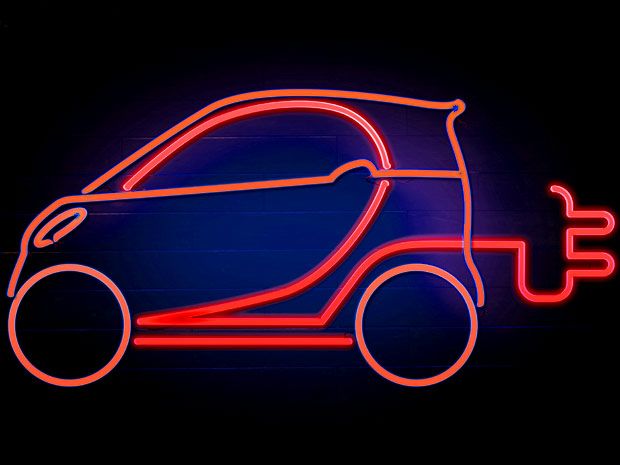
Spectrum.ieee.org: One of the biggest obstacles preventing more widespread adoption of electric vehicles is “range anxiety,” the fear of losing power and seeing your car shut down in the middle of a long-distance drive. Current technologies that estimate how much longer a battery will last still provide inaccurate measurements, because they use computer models that rely heavily on the driver’s recent behavior and don’t account for other factors.
Mo-Yuen Chow and Habiballah Rahimi-Eichi from North Carolina State University’s Advanced Diagnosis, Automation, and Control Lab think they have developed a better model. In a new paper that will be presented at the 40th Annual Conference of the IEEE Industrial Electronics Society, the researchers describe new software that uses a “big data” approach to gather information from multiple sources in order to estimate electric vehicle range. The driver needs only to provide a destination address or GPS coordinates, and the software combines historical data along with “predictive” data—variables such as traffic data, highway and surface-road characteristics, and even weather—to determine how much longer a driver can go before the batteries are tapped out.
“We’re not simply feeding data acquired from the last 5 or 10 minutes of driving, the way most estimation software has,” says Rahimi-Eichi. “We’re looking at what the next 5 minutes, 10 minutes, and more, look like for the car, and predicting what the car will do.”
The software acquires data from five sources: Google Maps (for route, terrain, and traffic data), Wunderground.com (for weather), driver history (through driving behavior measurements), vehicle manufacturers (for vehicle modeling data), and battery manufacturers (for battery modeling data).
Rahimi-Eichi points out that the software makes heavy use of data already available online. But its algorithms gather and analyze the information more effectively to improve range estimations. The system still needs to be tested in actual electric vehicles, but the researchers say that in simulations their code predicted a car’s range with 95 percent accuracy.
Past research has been aimed at alleviating range anxiety through other means, like speed management and optimized braking systems. Rahimi-Eichi says his team is now working on more extensive simulations and tests, and hopes the system could be commercialised within two years.